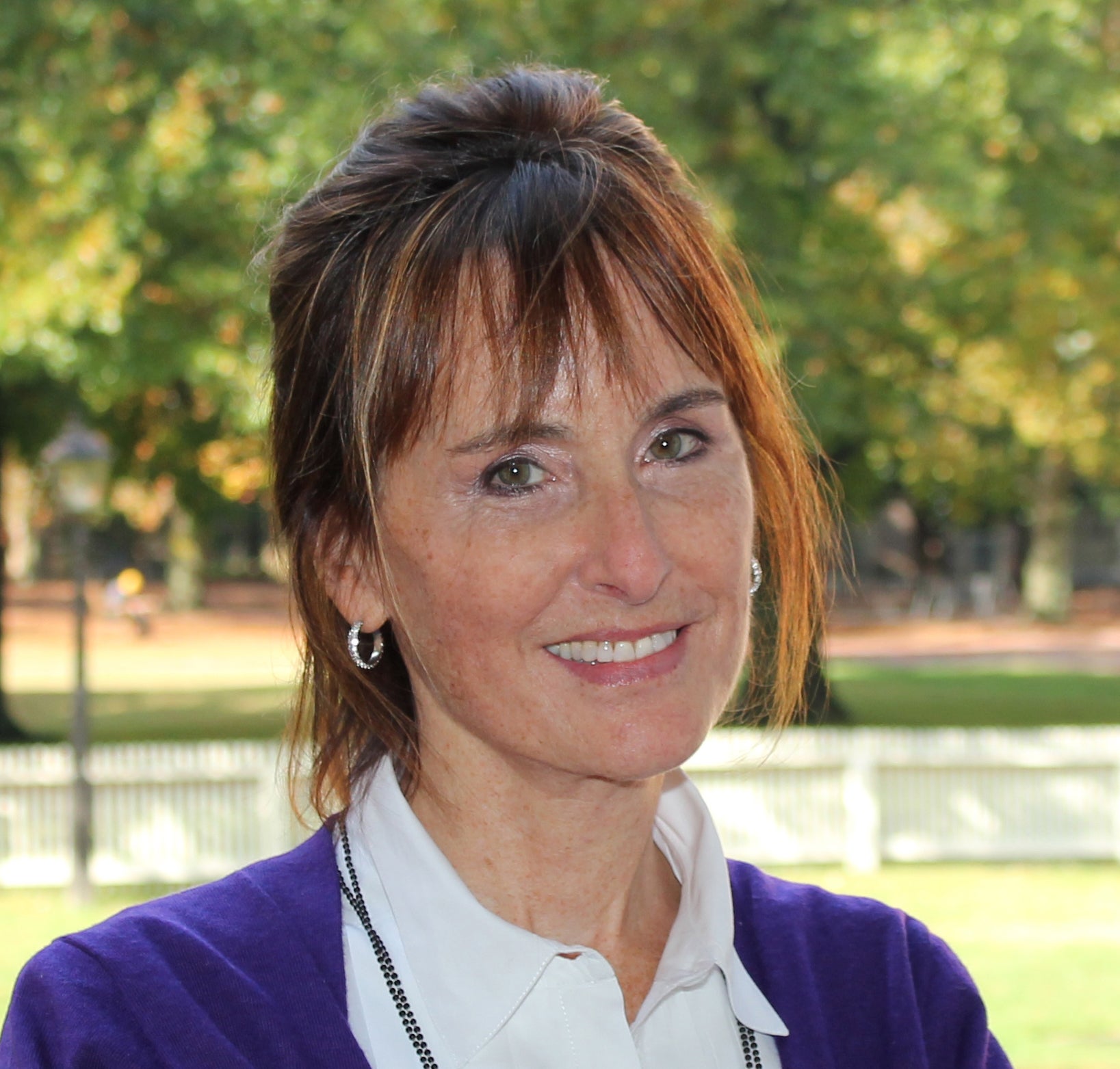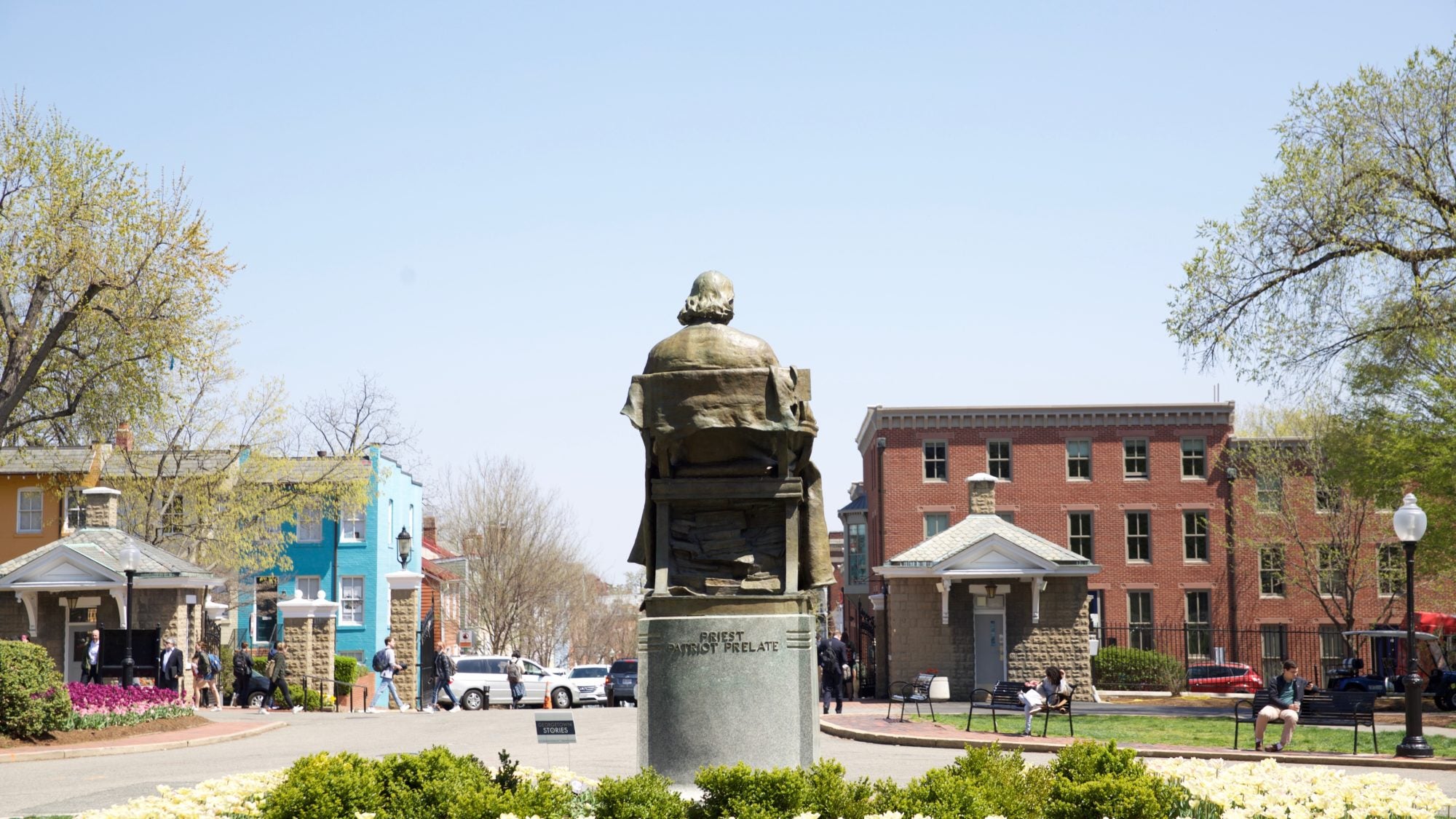

Title: Tamara Sonn Takes Over as ACMCU Director
Jokingly, she says that a “job offer” is what brought her to Georgetown. But the impetus for her move was that she found Georgetown’s Jesuit values relevant to her area of study. According to Sonn, Georgetown’s “commitment to developing … people dedicated to service and promoting justice” were more appealing than other schools that focus purely on professional development.
“That’s the purpose of liberal arts education in the classical sense: preparing free people to wield their democratic power responsibly, because the choices they make affect not just themselves,” she says.
Sonn was drawn to Islamic Studies when she realized the impact that U.S. actions have on the Muslim world. She grew up “knowing next to nothing” about Muslims and Islam. But as she travelled throughout the Muslim world, she was struck by the amount that the people she met knew about the United States. Understanding the U.S. impact on Muslim majority countries changed her academic interests, Sonn says.
“We may be ignorant of them, but they can’t help knowing about us. If we’ve learned nothing from 20th century history, it’s that not knowing is not an option. So that’s why I went into Islamic Studies.”
Sonn begins her tenure as director of the ACMCU at a critical time for pluralism and inter-communal understanding in the United States and Europe. Statistics show that hate crimes and acts of domestic terrorism are at an all-time high. “The events of the first weekend of August in El Paso and Dayton are perfect examples though, tragically, not isolated.” To further study this issue, the ACMCU has established a research project called the Bridge Initiative, which analyzes the roots and impacts of global Islamophobia and produces material to broaden the understanding of Islamophobia. Additionally, the Center’s programming features discussion of rising Euro-Christian nationalism and racism and the resulting hate crimes against Muslims, Jews, and others perceived to be threatening some imaginary ethnic purity..
This worrying trend is the reason that the work the ACMCU does for interreligious understanding is more crucial than ever, according to Sonn. She describes the Center’s approach to education as multidisciplinary, noting that the study of Muslim-Christian relationships inevitably involves how each religion relates to the world in general, including other religious groups and governments. The records of these interactions can be found in religious literature as well as secular literature and the arts. Through all these media, she says “communities express not only their values but also critical social concerns that can affect senses of communal identity: who is “one of us” and who is not to be trusted.” By equipping students with the tools to understand pluralism and religion in general as well as Muslim-Christian relations specifically, the ACMCU is preparing students for leadership in this contentious age.
So what’s next for the Center with Sonn at the helm? She aims to engage with other academic units on campus to expand the ACMCU’s multidisciplinarity. “One of our goals,” she says, “is to initiate a program in Religion, the Arts, and Global Affairs that allows students to recognize the importance of attending to the social concerns expressed in both religious discourse and the arts. The goal of the program – which would include course offerings and regular artistic performances – is to help students recognize that addressing those critical social concerns is essential for effective conflict resolution.”
“Our goal,” she adds “is to train students to address the causes of conflicts, rather than just manage their effects.”
During the next year, Sonn is looking forward to several important events at the center. ACMCU will host a panel on Arab migration to Latin America with the Center for Contemporary Arab Studies in October. Experts will present papers on the history and impact of Arab migration to Argentina, Brazil, and Mexico. And in the spring, the center will convene a half-day conference on “the challenge of pluralism in the 21st century,” focusing on the rise of anti-Semitic, Islamophobic white nationalism in Europe.
As the School of Foreign Service enters its second century, its students are facing rising ethnocentrism and increased division. The ACMCU’s objective will be to prepare those students to find creative, empathetic, and well-rounded solutions to the clashes of the future. “It turns out,” says Sonn, “we have more in common than we have differences. Understanding those commonalities so that we can work together to resolve political conflicts and other challenges facing the global community is the goal of the ACMCU.”